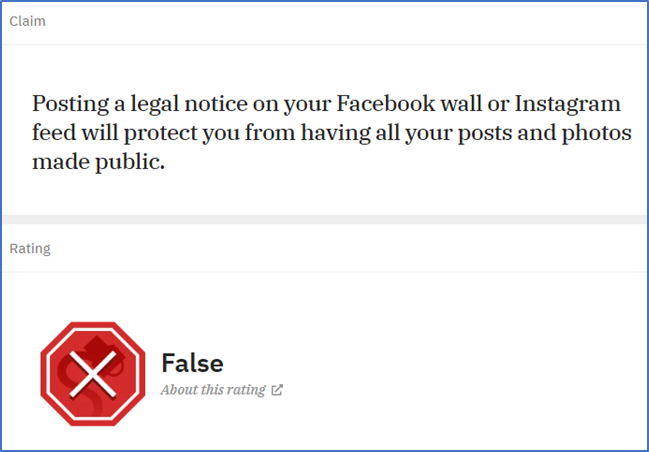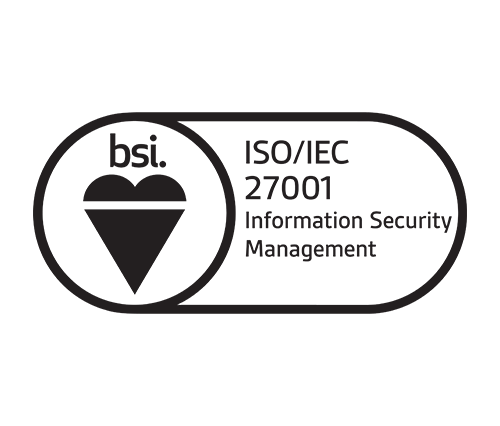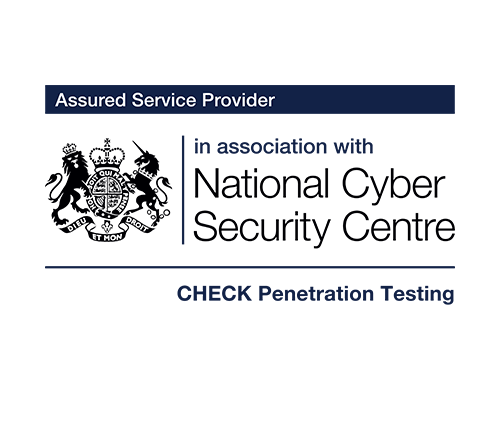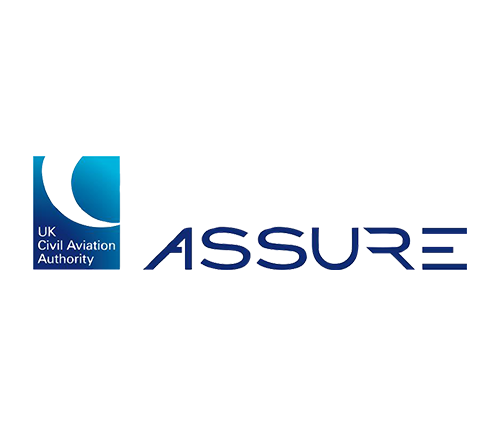We’re in strange times at the moment. Some things don’t change though e.g. the scams and fraudulent activity designed to separate people from their money or identity. When dealing with these scams the main thing to remember is:

If it seems too good to be true, it probably is.

While that statement is as true today as it ever was, it’s also a little bit subjective. Let’s look at some tools that you can use to judge for yourself.
Search Engines are your friends
A lot of scams are tried & tested and seem to do the rounds on a regular basis (seasonal, you might say). A favourite on Facebook is posting some kind of legal notice on Facebook or Instagram that “forces” compliance with your privacy and intellectual property wishes regarding pictures etc. It starts off something like:

Hi all. Don’t forget today starts the new Instagram rule where they can use your photo Don’t forget Deadline tomorrow !!! Everything you’ve ever posted becomes public from tomorrow. Even messages that have been deleted or the photos not allowed. It costs nothing for a simple copy and paste, better safe than sorry.

In the above instance, search for the following examples and Snopes should show up in the search results:
- “don’t forget tomorrow starts the new facebook rule”
- “don’t forget tomorrow starts the new instagram rule”

Snopes is a fact checking site, and a very good resource for checking all manner of claims made by people (and Bots!) on the Internet. Snopes has this to say about that claim:

The Claim and the Rating are the important bits and give a quick way to check what’s going on. They also included Facebook’s statement regarding the claim:

There is a rumor circulating that Facebook is making a change related to ownership of users’ information or the content they post to the site. This is false. Anyone who uses Facebook owns and controls the content and information they post, as stated in our terms. They control how that content and information is shared. That is our policy, and it always has been. Click here to learn more: www.facebook.com/policies.

‘Share This and We’ll Give You a Free <insert thing here>!’
This is quite a common post and it appears on my Facebook feed at least once a week. It generally has some kind of “Hey, we’re overstocked so we’re giving away a top of the line Range Rover to whoever reposts this!”. Companies rarely give away anything worth more than a few pennies or that you have to buy some form of ticket for. Share a page and get a luxury car? No, it isn’t happening… Dorset Tech have a great page describing these scams.
Phone Scams
Phone scams usually take the form of someone trying to get access to the target’s computer.
They start by claiming to be from Microsoft or another service provider and try to trick the user into thinking their PC has a virus or a problem. They usually try to trick the user into giving remote access to the “support person”. Once access has been granted the scammer will convince them to install rogue software for high prices. However, they also have full access to the victim’s computer. They can then harvest credentials, banking details, and other personal information.
Dealing with these is relatively straightforward: put the phone down. It’s rude, but hey, they’re trying to scam people, so they deserve some rudeness in their lives!
A good resource is the Telephone Preference Service / TPS.
By signing up to that you can reduce the number of marketing calls you receive and also report ones that get through. It’s mainly for UK numbers, but at least it helps. Of course, scammers outside of the UK aren’t going to care all that much. Telephone companies also have dedicated teams that deal with scammers and will block numbers when they are informed about them.
Resources
There are plenty of resources available, search engines are always a good first step when trying to determine whether something is legitimate or not.
If it’s on social media you can commonly report it as spam and get it blocked.
If it’s an attempt at financial fraud, look at your bank’s anti-fraud pages. There is usually plenty of information on how to spot scams that are specific to the financial sector.
The National Cyber Security Center (Twitter @NCSC) is part of GCHQ (Government Communications Headquarters). NCSC specialise in detecting and preventing cyber based crime and have a lot of useful information on how you can protect yourself.
Some useful sites:
Also check your bank and telephone provider websites or give them a call if anything looks suspicious. They’re more than happy to help as they want to stop scams!
…and finally
Ultimately, you don’t want to give away your personal information. The Internet is a little bit like the high street: plenty of stuff going on and a lot of people that you don’t know and therefore don’t trust. If a stranger in the real world high street walked up to you and asked you for your mother’s maiden name, the name of your first pet, and the town you were born in, your answer is likely to be a request for them to go away and leave you alone (or words to that effect…).
It should be the same on the Internet, even if that too-good-to-be-true-offer-of-a-lifetime is reposted by a trusted friend.














